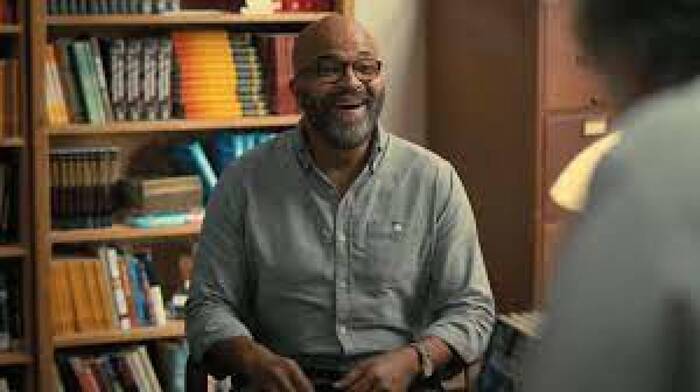Ralph Ellison, the author of
The Invisible Man,
said, in one of the letters published in December by Random House, that he dreamed of confronting his literature with that of the greatest writers, “discover who and what I am, what life is and what What is the art".
He would have liked “to write simply as an American or, better yet, as a citizen of the world, but that is impossible right now because it would be floating in the air of abstractions, while the only fire that illuminates those abstractions is born precisely from being black and in all the 'felt experience' that being a black American implies ”.
And if he could do it in ten tones, why do it in only five, he defended with a musical simile before his friend Richard Wright
(Native son),
fleeing from the cliché of the black assumed by the well-thought-out white.
That same ethical commitment to literary excellence and to the community would be assumed by James Baldwin, Maya Angelou, Terry McMillan and Toni Morrison, among others.
And, decades later, it is still maintained by writers born after the assassination of Martin Luther King in 1968. Colson Whitehead (1969) has won the Pulitzer twice: in 2017, for
The Underground Railroad,
making literary the railway line imagined by the slaves fleeing from the south, and this year, by
The Boys from the Nickel
.
Whitehead has frequented
thriller
and zombie tales, but none are as terrifying as his novelization of the torture and deaths of a real school of abandoned children and the Voltairean debate between evil and naivety.
How is it possible that the school of terror had remained open in Florida until eight years ago?
Ta-Nehisi Coates (1975), author of the celebrated essay
Between the World and I,
admirer of EL Doctorow and screenwriter of the comic
Captain America,
takes up Whitehead's allegories in his first novel,
The Water Dancer,
with a character from a plantation of Pre-Civil War Virginia that has the power to lead people incredible distances.
Under the waters of his prose lies the need to maintain memory and the impossibility of forgetting the wound, still excruciating.
The writer has relieved James Baldwin with his influential articles, in which he is as capable of lecturing Kanye West for his appearance alongside Trump as he is of updating the critique of "double conscience" (that looking at each other through the eyes of the rest) by the pioneer WEB Du Bois, whose book
The Souls of the Black People is
now rescued by Captain Swing.
Baldwin, in a famous letter to his nephew, advised: “Try to remember, I beg you, that what they believe, and also what they do and make you suffer, is not proof of your inferiority but of their inhumanity and fear. ”.
Ta-Nehisi Coates makes his son Samori see in
Between the world and me
that "the gigantic police state, the arbitrary detention of black people and the torture of suspects" is born of "the fears generated in themselves that have led to the people who think they are white to flee the cities and take refuge in their dreams ”.
An American dream whose gall the Nigerian Chimamanda Ngozi Adichie (1977), author of
Americanah,
tasted
during her stay in the United States.
"Racism is a mental illness, it should be called a racial disorder syndrome," he wrote.
Or the American of Ghanaian roots Yaa Gyasi (1989), who reconstructs in
Returning home
seven generations, since they were enslaved in Africa in the 18th century to the current discrimination.
Jesmyn Ward (1977) also gutted her with violence and harshness in
The Song of the Living and the Dead
, the other side
of Faulkner's
While I Dying
, but this time with racial denunciation in the background.
Roxane Gay (1974) has brazenly dynamited politically incorrect in
Bad Feminist
the conventions of heterosexual white female feminism or rape culture.
Television Janet Mock (1983), scriptwriter and director of the series
Pose,
has told her fight for LGTB rights in
Redefining Realness
and
Surpassing Certainty
.
For his part, NK Jemisin (1972) displays multicultural worlds in his science fiction novels, a genre that men used to dominate.
Tomi Adeyemi (1993) channeled his anger at the police shootings of unarmed blacks in the youth novel
Children of Blood and Bone
.
The human conflicts of the works cited are the same as in any other great literature, what radically changes is the experience of being black, lived by each writer in their own way, in a country where, despite notable advances, yet 43% of white adults say that "you see racial discrimination where it doesn't really exist."
The PEW poll reveals that white support for the Black Lives Matter movement has dropped from 60% in June to 47% in September.
Jim Crow laws were abolished
de jure
in 1964, but human rights lawyer Michelle Alexander, in her book
The Color of Justice
(Captain Swing), argues that segregation is maintained thanks to the actions of the police and the Difficulties imposed on African Americans leaving their neighborhoods drawn with red lines: "We have not done away with racial castes, we have simply redesigned them to appear legal."
Isabel Wilkerson, in her recent essay
Caste: The Origins of Our Discontents,
asks herself a plausible question in all parts of the world: what leads white workers and assimilated blacks to vote against their interests?
The author recovers the concept of caste, beyond social class or gender, which Martin Luther King already wielded during his stay in India.
Spanish publishers recover names such as WEB Du Bois, Audre Lorde, Toni Morrison or Maya Angelou
The movement has been analyzed by Keeanga-Yamahtta Taylor in
A Flash of Freedom: From #blacklivesmatter to Black Liberation
, Traffickers of Dreams, 2017), but it has its critics.
Black panthers can no longer save us
(Current Books, 2020) reflects the controversy raised by Cedric Johnson when he accused the BLM of being “the left wing of neoliberalism, in the sense that its only measure of social justice is opposition to disparity in the distribution of goods and evils in society, an ideal that naturalizes the results of capitalist market forces as long as they are equitable in racial terms (and other identity terms) ”.
Racism in America
(Harvard, 2020), rescues an article by Toni Morrison in which he denounced the North American canon.
If the power of literature is to imagine what the self is not, to familiarize the strange, and mystify the familiar, how have writers and white humanist critics envisioned them?
What is the impact of the notions of racial hierarchy, racial exclusion, and racial vulnerability and availability on non-blacks who maintained, resisted, explored, or altered those notions?
Baldwin would add that the mission that distinguishes the writer from other professions is to say what not that we do not want to recognize from our society and from ourselves.
African-American authors call for a new definition of racism, according to the postulates of anthropologists, for which race is an ideological construction and “racism is based on established social practices that are reproduced in the power relations that our bodies, emotions , relationships, knowledge, ways of life that generate material and symbolic privileges for some and oppression for others ”.
An issue that is not limited to the United States (read the French Elsa Dorlin, author of
The Matrix of Race
and
Self-Defense)
and that Guinean writers and writers from the second generation of African immigrants feel as their own in Spain, organized in spaces such as Wanafrica, United Minds, Afroféminas or the Madrid Afro-American Library directed by Mireia Sentís, while Spanish publishers publish Afro literature from all areas.
In addition to those mentioned, the poems of Audre Lorde (Viewer) have been published this year;
X
(Blackie Books), by Percival Everett;
The source of self-esteem
(Lumen), by Toni Morrison;
I Almost Forgot About You
(Alliance), by Terry McMillan;
What we sow
(Seix Barral), by Regina Porter;
Woman on the Edge of Time
(Consonni), by Marge Piercy, and the complete poetry of Maya Angelou (Valparaíso), among other titles.
The Nickel Boys
Author:
Colson Whitehead.
Translation:
Luis Murillo.
Publisher:
Literatura Random House, 2020.
Format:
soft cover (219 pages, 19.90 euros) and
e-book
(9.99 euros).
Find it in your bookstore
This time the fire
Edition:
Jesmyn Ward.
Translation:
María Enguix.
Editorial:
Ediciones del Oriente y del Mediterráneo, 2020
Format:
soft cover (248 pages, 18 euros).
Find it in your bookstore
The souls of the black people
Author:
WEB Du Bois.
Translation:
Héctor Arnau.
Publisher:
Capitán Swing, 2020.
Format:
soft cover (248 pages, 18.50 euros).
Find it in your bookstore
Panthers can no longer save us
Author:
Cedric Johnson.
Replicas:
Kim Moody, Jay Arena, Mia White and Touré F. Reed.
Translation:
Saoia Sáez and Carlos García.
Publisher:
Libros Corrientes, 2020.
Format:
soft cover (210 pages, 16 euros).
Find it in your bookstore
Caste: The Origins of Our Discontents
Author:
Isabel Wilkerson.
Publisher:
Random House, 2020.
Format:
hard cover (496 pages, 24.26 euros).
The song of the living and the dead
Author:
Jesmyn Ward.
Translation:
Federico González.
Publisher:
Sexto Piso, 2018.
Format:
soft cover (260 pages, 19.90 euros).
Find it in your bookstore
Back home
Author:
Yaa Gyasi.
Translation:
Maia Figueroa.
Publisher:
Salamandra, 2017.
Format:
soft cover (379 pages, 21 euros), pocket (9.95 euros) and
e-book
(10.99 euros).
Find it in your bookstore


/cloudfront-eu-central-1.images.arcpublishing.com/prisa/V22MUF36WRCMFMYVPT2JTWATUU.jpg)


/cloudfront-eu-central-1.images.arcpublishing.com/prisa/V6VLZTYXJFDXBNZJHIT2VDJVFY.png)
/cloudfront-eu-central-1.images.arcpublishing.com/prisa/TY47FSPP2RB4BEVHHZRVRO4QLY.jpg)






/cloudfront-eu-central-1.images.arcpublishing.com/prisa/S7ERVSCT4FUVX6R7TUVBDNTH5Y.jpg)
